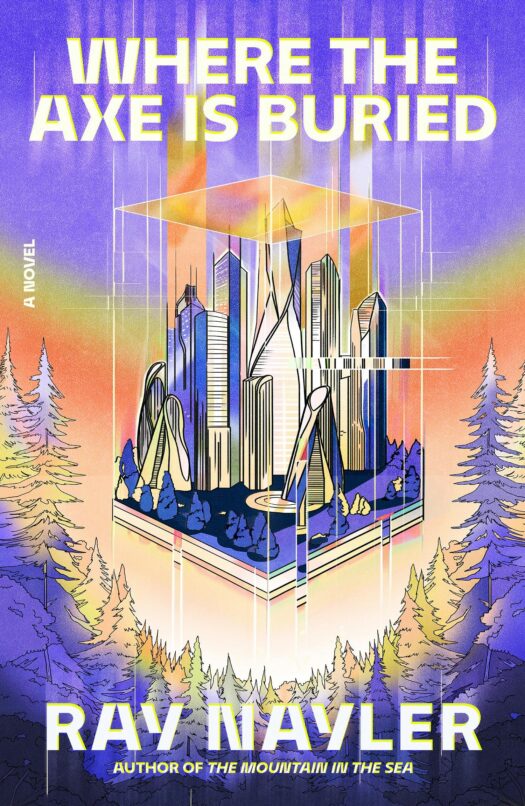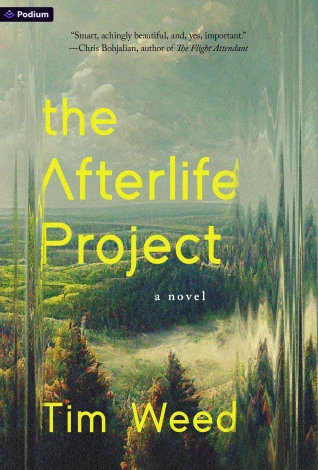AI, Autocracy, and Afterlife: Sci Fi Novelists Ray Nayler & Tim Weed
- Author
- [email protected] (Francesca Rheannon)
- Published
- Fri 13 Jun 2025
- Episode Link
- https://www.writersvoice.net/2025/06/ai-autocracy-and-afterlife-sci-fi-novelists-ray-nayler-tim-weed/
Writer’s Voice: compelling conversations with authors who challenge, inspire, and inform.
Episode Summary
This week on Writer’s Voice, two authors of speculative fiction explore what it means to be human in a world shaped by crisis, autocracy, and extinction.
First, Ray Nayler discusses Where the Axe is Buried, a gripping novel that imagines a future governed by AI prime ministers and mass surveillance. It’s a chilling look at authoritarianism, technocratic “solutions,” and the erosion of personal freedom. Yet it holds out hope for the eternal human drive for freedom.
“Dissatisfaction with things as they are is the engine that will always eventually undermine autocracy.” — Ray Nayler
Then, Tim Weed talks about The Afterlife Project, a haunting story set in the aftermath of a climate-engineered catastrophe. A lone scientist awakens 10,000 years in the future to discover whether humanity—and the planet—has survived.
“Maybe we will come to take what I consider to be our destiny as a species… to become the stewards of life on Earth.” — Tim Weed
Both novels ask big questions: Can systems change? What will artificial intelligence do to our democracies? And what kind of afterlife awaits a species on the brink?
Connect with WV:
Follow us on Bluesky @writersvoice.bsky.social and subscribe to our Substack. Or find us on Instagram @WritersVoicePodcast
You can support our show and the others you listen to by contributing through Lenny.fm. Your support helps us bring you more of the episodes, like this one, that you look forward to. Thanks for being a vital part of our community!
Key Words: Tim Weed, The Afterlife Project, speculative fiction, climate collapse, human extinction, ecological fiction, Ray Nayler, Where the Axe Is Buried, AI autocracy, surveillance state, artificial intelligence, authoritarianism,
You Might Also Like: Ray Nayler, THE MOUNTAIN AND THE SEA, Cary Groner, THE WAY
And check out Francesca’s new podcast about creating a new land ethic, Changehampton Presents: Changing the World One Yard At A Time

Segment One: Ray Nayler
Ray Nayler explores themes of power, control, and resistance in his speculative novel Where the Axe Is Buried. The story spans several autocratic states governed by algorithmic AI prime ministers, exploring how surveillance, “rationalized” decision-making, and stripped-down choice threaten human agency. Yet, amid bleak systems, the novel clings to the enduring power of human dissatisfaction to challenge oppression.
Key Topics
- Mass surveillance and the modern panopticon
- AI governance and technocratic authoritarianism
- Illusion of rational solutions vs. democratic debate
- The persistence of systems and bureaucratic continuity
- The limits—and possibilities—of revolution and protest
- The danger of unchecked technological development

Segment Two: Tim Weed
Tim Weed’s The Afterlife Project envisions a post-human future sparked by a climate crisis and geoengineering gone wrong. After a hyperpandemic leads to human infertility, one man awakens from suspended animation 10,000 years in the future. Through rich descriptions of ecological recovery, philosophical reflections, and a “new religion,” the novel explores what remains—and evolves—after catastrophe.
Key Topics
- Climate collapse and geoengineering
- Time dilation and future-setting in speculative fiction
- Human extinction and post-human ecosystems
- Non-human sentience and evolution
- Spiritual adaptation and ecological consciousness
- Geological time and the future of Earth
